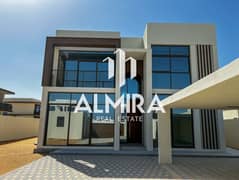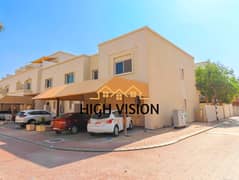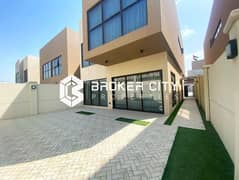The pros and cons of buying a new property in Abu Dhabi
Abu Dhabi has long been a hub for real estate investment. As one of the world’s most livable and rapidly developing cities, it offers a unique opportunity for those looking to invest in real estate. Whether you’re a seasoned investor or a first-time buyer, understanding the pros and cons of buying property in Abu Dhabi is crucial to making an informed decision.
Pros of buying a new property in Abu Dhabi
Booming Real Estate Market
Before signing the contract for an apartment for sale in Abu Dhabi, it’s a good idea to see how the real estate market is currently performing.
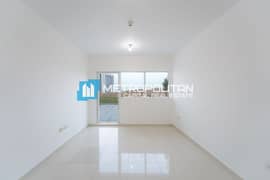
- 1 BED
- |
- 2 BATHS
- |
- 1390 SQFT
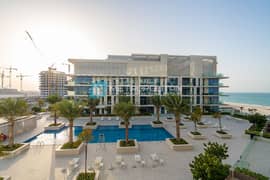
- 1 BED
- |
- 2 BATHS
- |
- 1702 SQFT

- 4 BEDS
- |
- 5 BATHS
- |
- 5314 SQFT
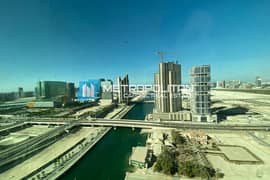
- 2 BEDS
- |
- 3 BATHS
- |
- 1506 SQFT

- 1 BED
- |
- 2 BATHS
- |
- 875 SQFT
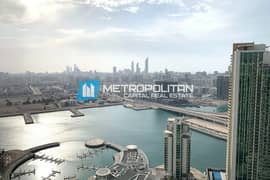
- 3 BEDS
- |
- 4 BATHS
- |
- 2249 SQFT
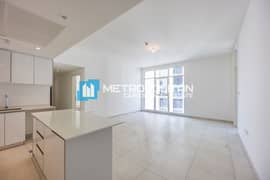
- 3 BEDS
- |
- 4 BATHS
- |
- 1356 SQFT
As per Bayut’s Abu Dhabi Sales Report for H1 2024, the real estate sector in the UAE capital is only gaining momentum, with both luxury and affordable property segments performing exceptionally well.
Abu Dhabi’s real estate market has experienced significant growth in recent years, with property prices and rental yields steadily increasing. This trend is expected to continue, making it an attractive investment destination for those looking to capitalise on the city’s economic expansion.
Here’s an overview of the pros and cons of buying a new property in Abu Dhabi.
Tax-Free Environment
The UAE, including Abu Dhabi, offers a tax-free environment for individuals. This, perhaps, is one of the biggest pros of buying a new property in Abu Dhabi, which means that property owners in Abu Dhabi do not have to pay any income tax, making it a lucrative investment opportunity.
Diverse Property Options
Abu Dhabi boasts many property options, from luxurious beachfront villas to modern apartments. This diversity caters to various budgets and preferences, allowing buyers to find the perfect property to suit their needs.
Strong Rental Demand
Moving forward with the pros of buying a new property in Abu Dhabi, the city’s rapidly growing population and thriving economy have created a strong demand for rental properties. This makes it easier for property owners to find reliable tenants and generate a steady rental income stream.
High Return on Investment
With property prices and rental yields on the rise, investing in Abu Dhabi’s real estate market can offer investors a high return on their investment, making it an attractive option for those looking to grow their wealth. Here’s how to analyse the ROI of the Abu Dhabi property.
Cons of buying a new property in Abu Dhabi
High Cost of Living
While the capital city offers a tax-free environment, the overall cost of living in Abu Dhabi can be high. Factor in additional fees for purchasing property in Abu Dhabi, maintenance and other related expenses and the numbers can add up quickly.
Restricted Ownership Rights
Foreigners are only allowed to own property in designated investment zones or freehold areas in Abu Dhabi, which can limit the available options.

Volatility in the Real Estate Market
Like any real estate market, Abu Dhabi’s property market can fluctuate. Investors may need to time their purchases and sales to avoid potential losses.
FAQs about the pros and cons of buying a new property in Abu Dhabi
What are the legal considerations for buying property in Abu Dhabi?
When evaluating the advantages and disadvantages of buying a new property in Abu Dhabi, it’s essential to understand the legal framework and requirements.
Some key considerations include:
- Ownership Restrictions:
- Non-Emirati or foreign citizens can only own property in designated investment zones. There are restrictions on the types of properties they can purchase.
- Leasehold vs. Freehold:
- In Abu Dhabi, there are two main types of property ownership: leasehold and freehold. Leasehold properties have a fixed lease period, while freehold properties offer more permanent ownership.
- Registration and Documentation:
- The process of purchasing a property in Abu Dhabi involves documentation and registration requirements, which can vary depending on the type of property and the buyer’s nationality.
- Mortgage and Financing:
- Obtaining a mortgage or financing options for property purchases in Abu Dhabi may have different requirements and processes than other countries.
What are the types of properties available for sale in Abu Dhabi?
One of the biggest benefits of purchasing a property in Abu Dhabi is that the city offers different property types to suit investment preferences and budgets.
- Apartments: From studio apartments to spacious penthouses, Abu Dhabi has a wide selection of modern apartments in prime locations.
- Villas: Luxury beachfront villas and more affordable options are available in various residential developments.
- Townhouses: These mid-sized properties balance a villa’s space and an apartment’s convenience.
- Commercial Properties: Investors can also explore opportunities in Abu Dhabi’s commercial real estate market, such as office spaces, retail units and industrial warehouses.
- Off-Plan Properties: Top developers often offer off-plan projects in Abu Dhabi, which allow investors to purchase a property during construction, often at a lower price.
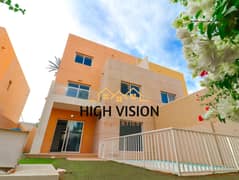
- 5 BEDS
- |
- 6 BATHS
- |
- 3748 SQFT
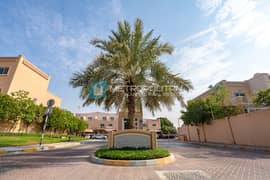
- 5 BEDS
- |
- 6 BATHS
- |
- 2936 SQFT
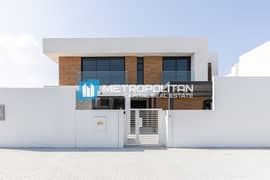
- 5 BEDS
- |
- 7 BATHS
- |
- 6843 SQFT
What should I consider when determining the pros and cons of buying a new property in Abu Dhabi?
- Research the Market: Thoroughly research the Abu Dhabi real estate market, including current trends, pricing, and upcoming developments.
- Understand the Legal Framework: Familiarise yourself with the legal requirements and restrictions for property ownership in Abu Dhabi.
- Hire a Reliable Real Estate Agent: Work with an experienced real estate agent who understands the Abu Dhabi market and can guide you through the buying process.
- Inspect the Property: Conduct a thorough inspection of the ready property. Look for potential issues or maintenance requirements to ensure you make a well-informed decision.
- Consider the Location: The property’s location is crucial, as it can impact rental demand, amenities and future capital appreciation.
- Understand the Financing Options: Explore the options, including mortgages, cash purchases and off-plan payment plans.
- Plan for Ongoing Costs: Factor in the ongoing costs of property ownership. This can include maintenance, utilities and potential property management fees.
What are my financing options for buying property in Abu Dhabi?
Talking about the benefits of purchasing a property in Abu Dhabi, you’d be pleased with the available financing options.
- Mortgage Financing: Many banks and financial institutions in Abu Dhabi offer mortgage loans for Emirati citizens and foreigners. Remember that every bank can have varying terms, conditions and document requirements.
- Cash Purchases: Investors with sufficient capital can opt for a cash purchase. Cash payment may provide more flexibility and potentially better negotiating power regarding cash vs. mortgage property purchases.
- Off-Plan Payment Plans: Developers in Abu Dhabi often offer attractive payment plans for off-plan properties. Buyers can spread the cost over the construction period.
What is the process of buying a new property in Abu Dhabi?
The process of buying property in Abu Dhabi can be complex, but understanding the key steps can help ensure a smooth transaction:
- Property Search: Begin by searching for suitable properties that meet your investment criteria through a real estate agent or by exploring online listings. Don’t forget to look for the TruCheck badge on Bayut.com to ensure you’re dealing with authentic listings!
- Due Diligence: Conduct a thorough due diligence process, including reviewing the property’s legal documentation, obtaining a professional inspection and verifying the developer’s credentials.
- Offer and Negotiation: Once you’ve identified a suitable property, work with your real estate agent to submit an offer and negotiate the terms of the sale. You can even buy property directly from the owner in Abu Dhabi.
- Contract Signing: Upon reaching an agreement, you must sign a sales and purchase contract. This document will outline the terms and conditions of the transaction.
- Deposit and Down Payment: Typically, you’ll be required to make a down payment followed by remaining instalments.
- Registration and Title Transfer: The final step involves registering the property and transferring the title deed in Abu Dhabi to your name. This process may require the assistance of a legal professional.
Working closely with a reputable real estate agent throughout the process can ensure a successful property purchase in Abu Dhabi. Remember that you can also opt for a property ownership transfer in Abu Dhabi.
What are the popular areas for buying property in Abu Dhabi?
Abu Dhabi has diverse residential areas that appeal to different investors. Some popular areas for property investment include:
- Saadiyat Island: The master-planned Saadiyat Island has luxury beachfront properties and high-end cultural attractions like the Saadiyat Cultural District. It is a prime destination for those seeking a premium lifestyle.
- Yas Island: Known for its various entertainment facilities, Yas Island is popular for properties with a strong rental potential.
- Al Reem Island: You can find a wide range of residential properties for sale in this mixed-use development.
- Al Raha Beach: This waterfront community has luxury villas, apartments and townhouses near the beach and plenty of amenities.
- Khalifa City: This quaint neighbourhood is often the most popular choice for affordable apartments and villas.

This marks the end of the guide on the advantages and disadvantages of buying a new property in Abu Dhabi. Investors can make informed decisions by weighing the pros and cons of buying a new property in Abu Dhabi.
To learn more about Abu Dhabi’s real estate sector, subscribe to MyBayut!







